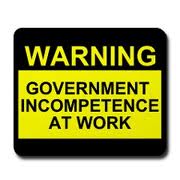In their constant search for shutdown-related disasters, the media are now fixated on airport screeners. The shutdown is wreaking havoc on airports, they say. Except that it isn’t. The shutdown does, however, present an opportunity to re-privatize the troublesome TSA.
News reports focus on the fact that TSA worker no-shows are up from a year ago. But the TSA’s own data show that wait times haven’t changed. Its latest report finds that “99.9% of passengers waited less than 30 minutes and 95.4% of passengers waited less than 15 minutes.”
That’s in line with normal operations. TSA reported in 2017, for example, that 99.9% of passengers waited less than 30 minutes during summer months.
TSA Delays Aren’t New
The fact is that on any given day, there will be long lines to get through security at some airports. Anyone who has traveled frequently knows this. Yet the press now treats every line at security checkpoints as examples of the grave harm caused by the government shutdown.
The problem with the TSA isn’t the government shutdown, it’s with the TSA itself.
The agency was created in a panic after 9/11, when officials decided to blame private airport screeners for letting terrorists board planes with box cutters.
So, Congress, with the blessing of President Bush, nationalized airport screening and gave birth to the Transportation Security Administration, which has seen its budget climb more than 41% since 2005.
The result has been little short of a disaster of poor performance and wasteful spending.
A recent Government Accountability Office report found that from 2014 through 2016, the TSA handled 45,153 cases of misconduct by employees.
Nearly half — 22,373 — involved “unexcused or excessive absences or tardiness, absence without leave, failure to follow leave procedures.” More than 6,000 involved “screening and security offenses.” Another 2,703 were for things like sexual misconduct, fighting and abusive language. And 2,562 were for “neglect of duty.”
Keep in mind that the TSA employs only about 53,000 people. In other words, each year about a quarter of the TSA’s workforce was under investigation for misconduct. And, in typical government fashion, most of those violations (65%) resulted in nothing more than a sternly worded letter. Only 4% of the misconduct investigations led to any employee getting fired, only 9% resulted in a suspension.
Failing Screening Tests
Worse, TSA screeners have repeatedly failed to do their one job: prevent passengers from bringing contraband onto planes.
In 2006, undercover agents were able to get fake bombs past screeners 75% of the time. They were able to do so 96% of the time in a 2015 test. And in 2017, agents were able to beat TSA agents some 80% of the time.
Just this month, a passenger — inadvertently — made it through security at Atlanta’s Hartsfield-Jackson with a gun and boarded a plane bound for Tokyo. The agency’s response: “TSA has determined standard procedures were not followed.”
Audits by the Department of Homeland Security’s inspector general have uncovered vast amounts of waste. In one case, the TSA spent $160 million on body scanners that failed 96% of the time. A congressional investigation found that the agency dumped $44 million on “explosive trace detectors” that it didn’t need.
Conflict of Interest
But the TSA is troublesome for another reason: It both operates and regulates airport security. “From a purely good-government perspective, the TSA has an inherent conflict of interest,” noted the Heritage Foundation’s David Inserra.
Private contractors would be more efficient, more flexible, and more accountable than the TSA. If for no other reason than they risk getting fired. The TSA isn’t ever going to fire itself for incompetence.
The TSA’s sorry record is no doubt why 22 airports around the country have opted to hire their own private screening service, under the oversight of the TSA. These include San Francisco, Kansas City, Key West, Orlando Sanford and Atlantic City International airports. Canada and most of Europe employ private screeners as well, Inserra notes.
It’s time to end the 18-year experiment in government-run airport security. Preferably before the next government shutdown.
